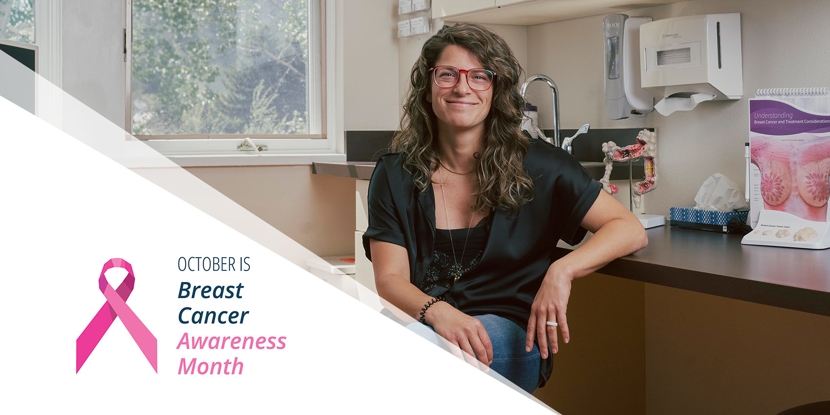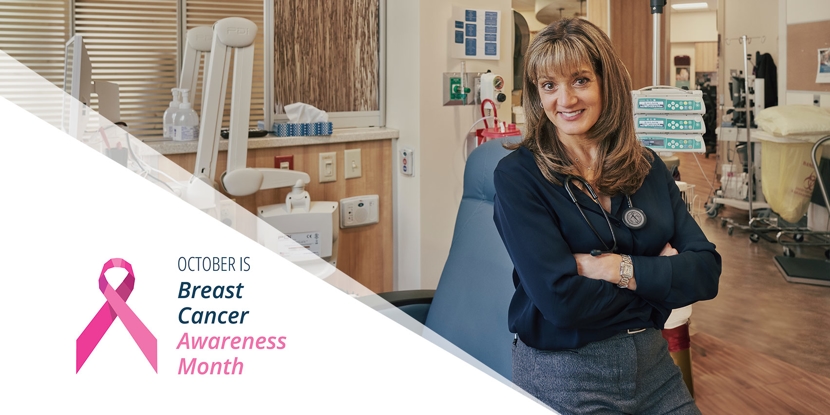6 Common Conditions and When To Seek Diagnosis
- Posted On:
- Written By: St. John's Health

Identifying Your Condition
Whether due to varying symptoms or infrequent doctor's visits, millions of conditions go without a diagnosis and, by extension, treatment every year. Failing to obtain a diagnosis for your recurring symptoms can only lead to frustration, unanswered questions, continuous pain and discomfort, and worsened conditions.
Read on to learn more about six commonly conditions — and gain confidence in advocating for yourself as a patient experiencing any symptoms.
1. Gastrointestinal Disease
Gastrointestinal diseases, such as inflammatory bowel disease (IBD) and irritable bowel syndrome (IBS), can be difficult to diagnose and treat. This is because the symptoms of these conditions can vary widely from patient to patient.
For example, IBD may present with cramping, abdominal pain, fatigue, and weight loss, while IBS may present with constipation, diarrhea, bloating, and abdominal pain. Additionally, many people don’t seek medical attention until their symptoms become debilitating or life-threatening.
2. Thyroid Disease
The symptoms of thyroid disease, such as Hashimoto’s thyroiditis and Graves’ disease, can easily be mistaken for other ailments.
These conditions may present with fatigue, weight gain, depression, anxiety, and irregular menstruation. Moreover, many people don’t pursue further testing if their initial thyroid test results are standard, as they assume all is well.
Read More: Can Men Be Diagnosed with Thyroid Disease?
3. Autoimmune Diseases
Autoimmune diseases such as lupus, rheumatoid arthritis, and multiple sclerosis are often misunderstood due to their wide range of symptoms and the fact that there is no single test for diagnosing them.
These diseases may present with fatigue, joint pain, fever, rash, and difficulty breathing.
Patients often don’t realize their symptoms are linked to a particular autoimmune condition until months or years after the initial onset of symptoms.
4. Mental Health Conditions
Though one in five American adults experiences mental illness annually, only 46% seek appropriate treatment. This could be because mental health issues, such as anxiety disorders and depression, often have a stigma associated with these conditions.
People may be reluctant to seek medical attention for fear of being judged or labeled or due to a lack of interest in putting in the work to begin healing. Mental health symptoms can also vary in intensity and frequency, making it difficult to identify a single cause of distress.
Common signs and symptoms of mental health conditions may include fatigue, difficulty sleeping, changes in appetite or weight, and feelings of hopelessness. If you think you may be experiencing a mental health condition, it’s important to seek professional help from a qualified mental health provider.
5. Endometriosis
Endometriosis is a common gynecological condition that affects millions of women worldwide, yet it often goes undiagnosed.
This condition occurs when tissue similar to the uterine lining grows outside the uterus in other parts of the body. Symptoms may include pelvic pain and cramping, heavy menstrual periods, and infertility.
Because these symptoms are common in many women and can be attributed to other conditions, endometriosis is often overlooked for extended periods. If you experience any of these symptoms, it is important to speak with your provider and seek out further testing if needed.
6. Certain Cancers
Certain forms of cancer can be more difficult to detect in their early stages. This could be due to the nature of the type of cancer itself, a lack of symptoms until the condition has developed further, or failure to schedule and attend regular cancer screenings.
Some of the most difficult cancers to diagnose are:
- Kidney
- Pancreatic
- Non-small cell lung
- Ovarian
- Sarcoma
- Brain
- Liver
If you are at risk of developing cancer, it is important that you have continuous conversations with your provider about screenings, prevention, and testing.
Schedule Your Next Checkup
Identifying and diagnosing your condition is the first crucial step that must be taken in order to begin treatment and manage your symptoms. Take your health and well-being into your own hands and schedule a visit with a healthcare provider at St. John's Health today!



